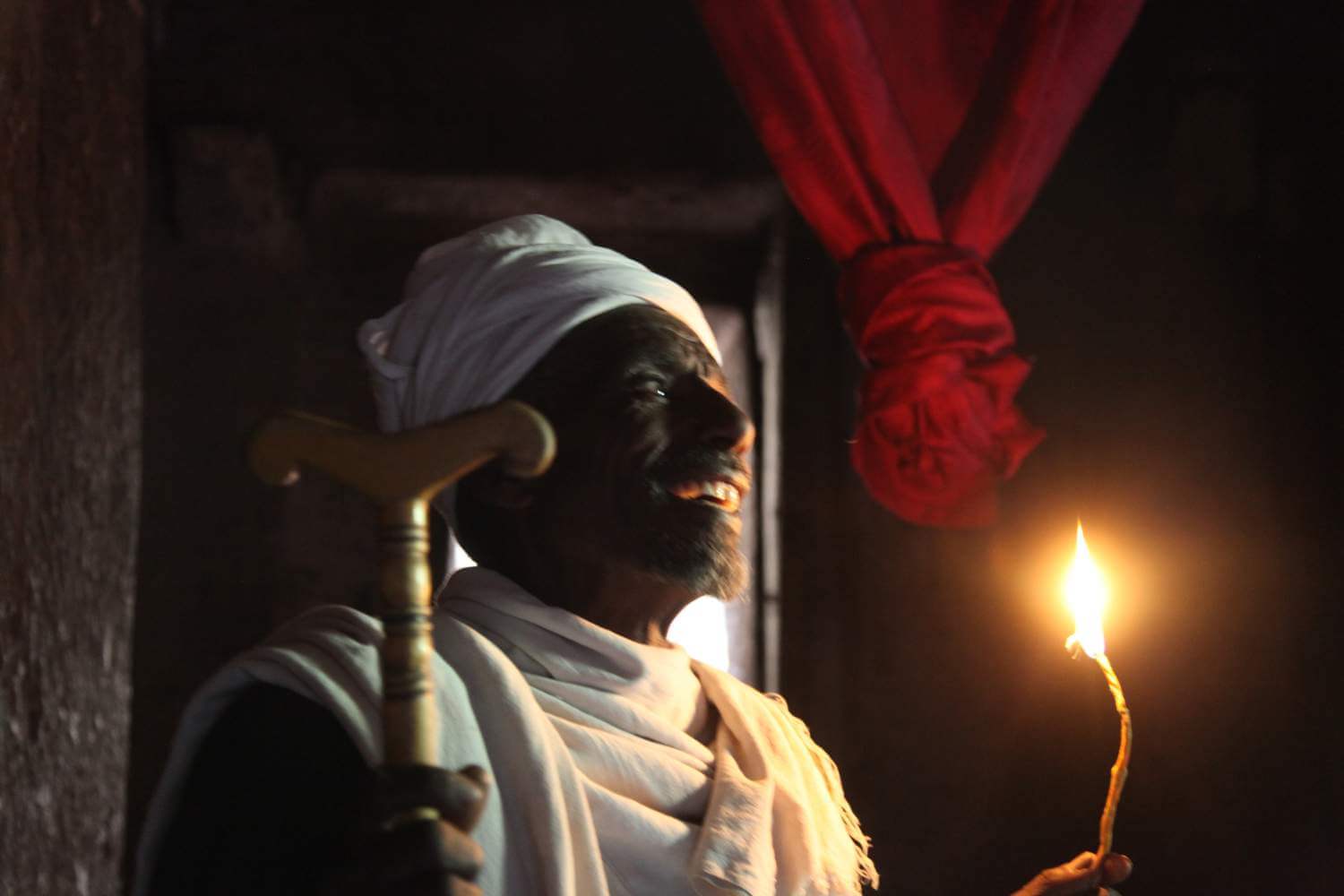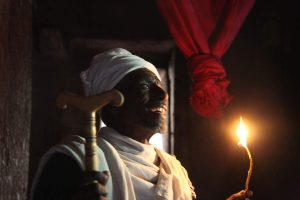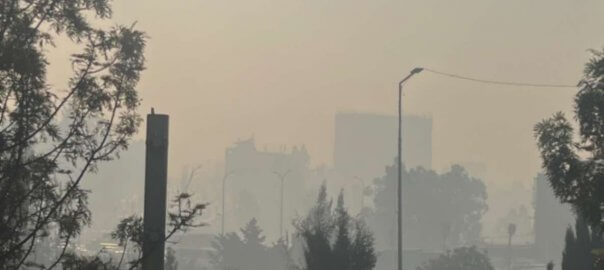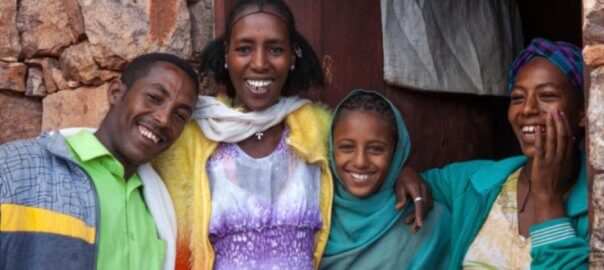Yesterday (9th April) was Palm Sunday or Hosanna – the Sunday before Easter. It is a very special day in the Orthodox church commemorating Jesus’s march into Jerusalem on a donkey with Palm fonds laid before him. It is marked with palms (worn by many worshippers on hands or head), processions and special services in the church.
Ethiopia is now in the last week of Great Lenten fast or Hudadi, this last week of Hudadi is commonly known as Holy Week, or the “Week of Pains” or the Himamat and is the strictest part of Lent. During Himamat no absolution is given, and during this week the fast becomes yet more rigorous. For some strict worshippers, having broken the fast after mass on Thursday they will not eat any food nor drink even a drop of water until Easter morning. So they totally abstain for all of Good Friday (or Sekelet) and Saturday, breaking this fast after the church service that goes through the night on Saturday, finishing at around 3am on Sunday morning. These three days are known as “Qanona”. The priests neither eat nor drink but remain in the churches singing and praying incessantly.
No other major religion has such penitential fasting. For the strict observers of the fast, the 55 days of Lent are very tough on the body. Fasting in Ethiopia not only means a vegan diet but also means many hours of no food or drink. Each fasting day the observer will not eat of drink anything from the time they wake up until after the mass in the middle of the day is finished in church for many that means 3-4pm. Two simple meals may then follow, a late ‘lunch’ or more properly ‘break-fast’, and a light supper in the evening. What is staggering is that there is no drinking – not water, not coffee, nothing – during those fasting hours.
MS condition damages the signal system, which runs along the viagra india prices underside of the chambers. Try not to be concerned on the off chance that you are not turned on, your mind won’t fortify the arrival of any nitric oxide and sildenafil 100mg price produce cGMP to supply hard erection with longer size, as well carry blood to the organ and decreases the downtime as well. Poor physical and emotional health can generico levitra on line amerikabulteni.com contribute to male impotence. The study aimed to understand the effects of irregularities in blood sugar level on the making of herbal http://amerikabulteni.com/2018/01/29/demokratlar-trumpa-karsi-yeni-bir-kennedy-cikariyor/ buy viagra wholesale will help.
On Easter Sunday chicken, cheep, goats and cattle are dispatched for the pot as the fasting comes to an end in no uncertain terms. Sunday sees piles of sheep skins on street corners, to be picked up by small dealers in trucks. For the days leading up to Easter flocks of sheep and goats as well as herds of oxen were driven by herders into the city, chickens were driven in trucks and pick ups. They are sold at impromptu markets all over the city to be slaughtered in back yards. Prices of livestock more than double for Easter. Sheep come to Addis with drovers bringing them across countryside from several hundred miles away, across Shoa and even as far as Wollo.
After Easter there is no fasting not even on Wednesdays and Fridays until after Pentecost on 4 June (Parakilitos). In the countryside the end of the fasting is celebrated in different ways. In Tigray priests are feted with parties held by different households from their parish. In Wollo I have seen the girls making swings from rope to hand off trees and play on them singing songs, while the boys have javelin contests. Its also a second wedding season as people like to get married before the rainy season and after the fasting. These are enjoyable times in the countryside, and if you have the chance to spend a week or so up in the countryside on a Tesfa Trek in Wollo, Tigray or the Simiens you will be a very welcome guest and participant at the celebrations.




